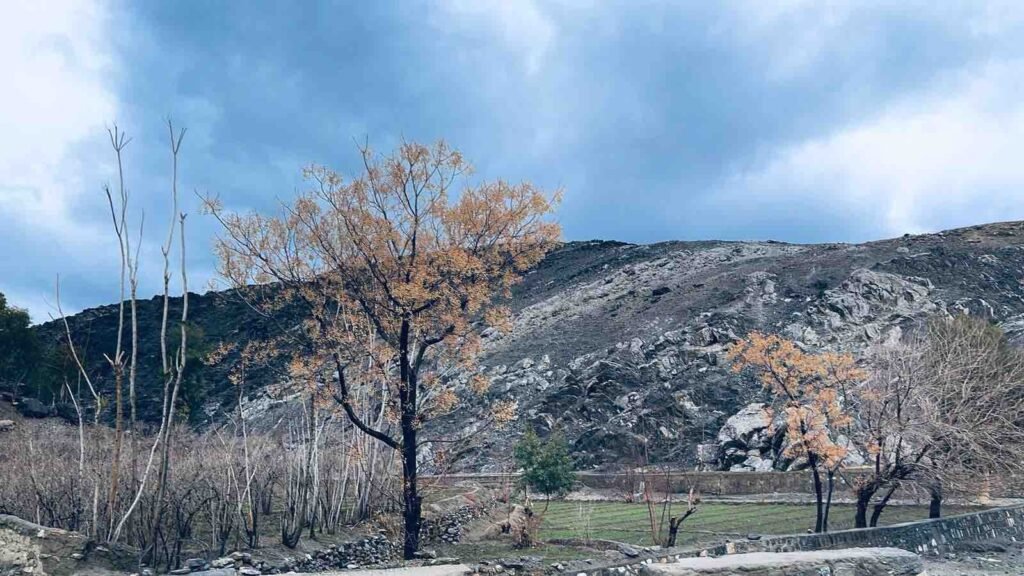Taliban Enforce Media Crackdown: Restrictions on Photos and Women Voices

Outskirts of Khost province. Photo captured by @AADIL for ADN
By Ilhamuddin Afghan
A recent order by Taliban leader Mullah Habatullah to ban TV interviews and images of the group’s officials in southern Afghanistan has sparked concerns among media organizations.
Sources from Kandahar National Television have revealed a prohibition on capturing people’s images, with spokespersons avoiding screen appearances. Moreover, the Taliban-appointed governor of Kandahar has urged media channels to refrain from showcasing photos of living creatures.
These actions follow prior restrictions imposed in Helmand province, where women’s voices were barred from media broadcasts. Additionally, the Department of Information and Culture in Southern Helmand Province has directed media platforms to cease broadcasting female voices in commercials or other programming.
In response to these restrictions, female journalists employed in the media have chosen not to speak publicly. The Afghan Journalists’ Center has strongly criticized these limitations, denouncing them as encroachments on women’s rights.
Nevertheless, questions remain regarding the Taliban’s broader objectives and the implications of their actions for Afghanistan’s future. Expressing concern over the ramifications of such sanctions, a former professor from Kabul University, now unemployed, warns of the potential isolation of Afghanistan from the global community.
“It’s shameful that we’re still stuck in medieval ignorance in the twenty-first century. The Taliban’s interpretation of the Qur’an and the Prophet’s Sunnah is deeply flawed and contrary to the principles of Islam. Their actions promote ignorance and are based on false traditions, which is unacceptable,” he said.
Critics argue that the Taliban’s focus on repressive measures has hindered meaningful societal advancement, perpetuating dependency and stifling dissent. Widespread poverty persists, and many Afghans have been stripped of their right to work, as institutional appointments are based on Taliban preferences rather than merit.
Recently, a former Jihadi leader, Muhammad Zaman Muzamal, expressed in a televised discussion: “Over the past three years, we’ve only resolved thirty percent of the issues, yet the people feel trapped in a political quagmire.” His message implies that instead of addressing people’s concerns, the Taliban are exacerbating their problems, leading to widespread discontent among the populace.
The public remains silent in the face of Taliban actions, fearing reprisal and imprisonment for speaking out. These concerns pervade discussions in both public and private gatherings, with Afghans deeply troubled about their future. They lament being under the control of a regime that disregards human values, Islamic principles, and social rights, feeling as though Afghanistan has been held hostage without accountability or responsibility from those in power.
Media Censorship and Public Fear
Amidst stagnation, laws remain unenforced across the country, governance principles are flouted, and the Taliban tout peace and eradication of corruption. However, the reality paints a starkly different picture: widespread poverty plagues the populace, with a significant portion living below the poverty line. Many Afghans have lost their right to work, and institutional appointments are often based on affiliation rather than merit, with nepotism prevailing.
Mohammad Noor, a tribal leader from eastern Laghman province, draws parallels between the current regime and past oppressive governments, cautioning against the dangers of equating peace with silence. “When the Taliban speak of peace, it’s akin to finding peace in the cemetery or prison, where dissenting voices are silenced,” said Noor.
Despite mounting grievances, public dissent remains largely subdued, fueled by fear of reprisals and imprisonment. The absence of a vocal opposition underscores the pervasive climate of fear and intimidation cultivated by the Taliban.
Meanwhile, the media landscape grapples with stringent censorship, with local outlets compelled to comply with Taliban directives or face punitive measures. The ban on female voices and photos further compounds the stifling atmosphere, leaving media officials and the population resigned to accepting Taliban dictates.
As Afghanistan navigates these turbulent times, the people find themselves at a crossroads, grappling with uncertainty and the erosion of fundamental rights and freedoms. The international community observes with concern, cognizant of the implications of unchecked Taliban authority on regional stability and human rights.
Ilhamuddin Afghan is a university professor based in Afghanistan.
Note: The contents of the article are of sole responsibility of the author. Afghan Diaspora Network will not be responsible for any inaccurate or incorrect statement in the articles.






